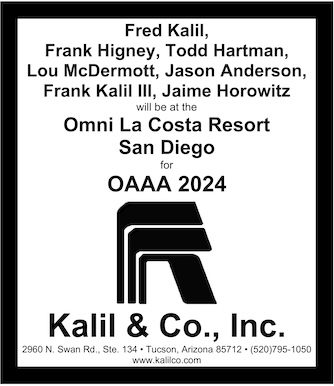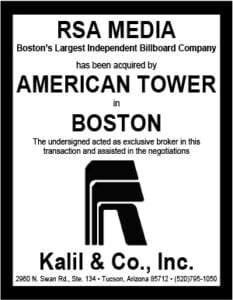
By Richard Rothfelder, Rothfelder & Falick, LLP
On August 25, 2020, the United States Court of Appeals for the Fifth Circuit rendered its unanimous opinion in Reagan National and Lamar Outdoor vs City of Austin, holding that Austin’s prohibition on the digitization of off-premise signs, while allowing it for on-premises, was a content based regulation that violates the First Amendment. In doing so, the Fifth Circuit now joins a growing list of federal and state appellate courts across the Country applying the precedents from the Supreme Court’s 2015 decision in Reed vs Town of Gilbert to address municipal sign codes and state highway beautification acts that distinguish regulations based upon whether the sign advertising or identifying goods, services, or businesses is located on or off of the same premises where those goods, services, or businesses are offered or situated. These definitions of so-called “on-premise” and ”off-premise” signs are considered content based, and as such, have led in the last five years to holdings that the Highway Beautification Acts in Texas (Auspro vs TxDOT), Tennessee (Thomas vsBright), and Kentucky (L.D. Management Co. vs Tennessee Transportation Cabinet ) violate the Constitution’s protection of Free Speech.
The Reagan and Lamar vs Austin case arises from a similar constitutional defect in the Austin Sign Code, which defines on-premise and off-premise signs in this traditional and questionable manner. The Austin Sign Code then goes on to apply different regulations and exemptions to on-premise vs off-premise signs. In particular, automatic changing digital displays are allowed for on-premise signs, while this technology is prohibited for off-premise signs.
In 2017, Reagan and Lamar submitted a number of applications to convert their existing static off-premise signs to digital displays. The City denied the applications based on the prohibition on off-premise digital displays in its Sign Code. Reagan originally sued the City in state court, but the City removed the case to federal court, where Lamar then intervened. After a bench trial, the United States District Court for the Western District of Texas denied Reagan and Lamar’s requests for declaratory judgment, and held the Austin Sign Code was content neutral and satisfied intermediate scrutiny, thereby entering judgement for the City.
On Reagan and Lamar’s appeal, the Fifth Circuit relied heavily on Reed, and it even “abrogated” some of its previous inconsistent holdings, in finding that Austin’s on-premise/off-premise distinction is content based. The Court then determined that the Austin Sign Code regulated both commercial and noncommercial speech, and that billboards often display both types of messages, so that a strict scrutiny constitutional analysis would apply. Finally, under this analysis, “the Government [must] prove that the restriction furthers a compelling interest and is narrowly tailored to achieve that interest,” which the Court acknowledged is a “hard standard to meet,” and could not be met by Austin in this case.
The Fifth Circuit, therefore, held “the on-premise/off-premise distinction is content based and fails under strict scrutiny. It thus runs afoul of the First Amendment.” And, as such, the District Court’s decision to the contrary was reversed, and the case was remanded “for further proceedings consistent with [the] opinion,” meaning presumably that Reagan and Lamar will be issued their permits for the digitalization of their signs.
[wpforms id=”9787″]
Paid Advertisement

















